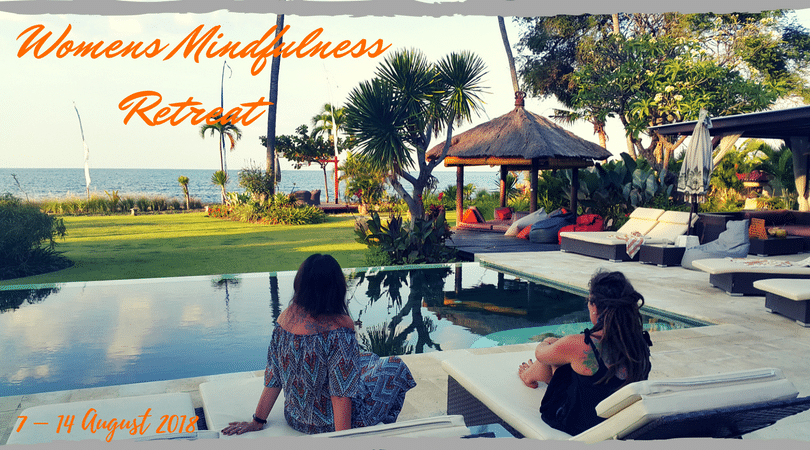How do you describe mindfulness in your retreat?
Mindfulness is simple, in fact it’s the simplest thing imaginable: being in the present moment, just focusing on one thing at time in a non-judgmental, curious and open manner. So why then do we find it so hard? Learning to quieten your mind can be a challenge for sure, but the benefits are numerous and like anything, it just takes a bit of practice.
Each year, our to-do lists grow longer, calendars become fuller and the days get shorter as we try to cram in more of everything. If you don’t have a mind-body health routine, it’s easy to be thrown off course by the whirlwind of busy-ness and activity. Learning the skill of mindfulness actually allows you to create more time— crazy I know! Studies show that regular mindfulness practitioners also live longer.
Mindfulness can also help you manage your emotions which in turn can change your perception, and maybe even the course of your life. I know I sound fanatical, but the reality is that mindfulness is life-changing. And the best thing is that the techniques you learn are available to you anytime, anywhere and they’re free!
How can being mindful benefit people?
Changes are occurring in our lives at an ever-rapid pace. Our roles as parents, partners, caretakers, employees, etc., all vie for our time and energy. We become even further stretched as we encounter life transitions such as separation, career change, loss of a loved one, health challenges or identifying our life’s purpose. The need to slow down, reconnect with ourselves and reflect on what is important to us, is a form of self-care that has become crucial to our well-being.
Mindfulness can be applied to many aspects of our health and wellbeing:
Mental health
E.g. depression relapse prevention, anxiety, panic disorder, stress, emotional regulation, addiction, psychosis
Neuroscience
E.g. structural and functional changes in the brain, dementia prevention, working memory
Clinical
E.g. pain management, symptom control, cancer, hormones, genetic function and repair
Performance
E.g. sport, academic, leadership
Spiritual
E.g. deep peace, insight, connection
Mindfulness helps you slow down and smell the roses—it’s that simple.
Can you suggest a mindfulness practice that you can do daily?
Mindfulness Triggers.
A mindfulness trigger is something that will remind you to break out of “automatic pilot” so that you can be mindful, spontaneous, calm, and free.
Mindfulness triggers are reminders for you to come back to awareness so that daily activities can become more meditative and so that your whole daily life can become a meditation practice.
The Vietnamese Buddhist Teacher Thich Nhat Hanh suggests posting little notes that will remind you to smile and relax. You can post notes so you will see them first thing in the morning, helping to set the tone for the day.
You can stick a note to your computer screen or wherever you work, in order to remind you to detach yourself from the flow of habitual thoughts and emotions for a few breaths.
Mindfulness triggers can also be ordinary actions or objects in your environment. You can learn to associate those actions and objects with being mindful, so that they act as reminders to be aware. I find that what I call “transitional events” make the best mindfulness triggers.
A transitional event is an action that involves changing from doing one thing to doing another. So walking through a door can be a transitional event that acts as a mindfulness trigger, as can getting into your car, or stepping onto a train, hearing your phone ring, or putting down a briefcase.
Pick a transitional event in your life such as stepping onto a train or closing your car door. For that period of time bring yourself into present awareness instead of wasting time thinking about what you have to do at work tomorrow, or what you’re going to eat for dinner. You can do that later, for now you can just focus on the present—what you are doing right now in this moment.
Your retreat is aimed at women. Is there any specific reason why you choose to work with women only?
I am aware that this sounds sexist! I like men, really I do!! But I’ve been a group work facilitator for seventeen years running groups with both and men and women, but I find having just one gender more relaxing and a different dynamic.
I’d also be happy to run a retreat with men only, if you can find enough who would want to participate. So I don’t know if that’s a satisfactory answer but I just find that a group of people of the same gender bond together better and create a feeling of safety and support.
Who could benefit from your retreat?
That’s easy—everyone!
If you are ready to move into a state of greater health, possibility, balance, and joy, I invite you to join us for our Women’s Mindfulness Retreat in Bali



